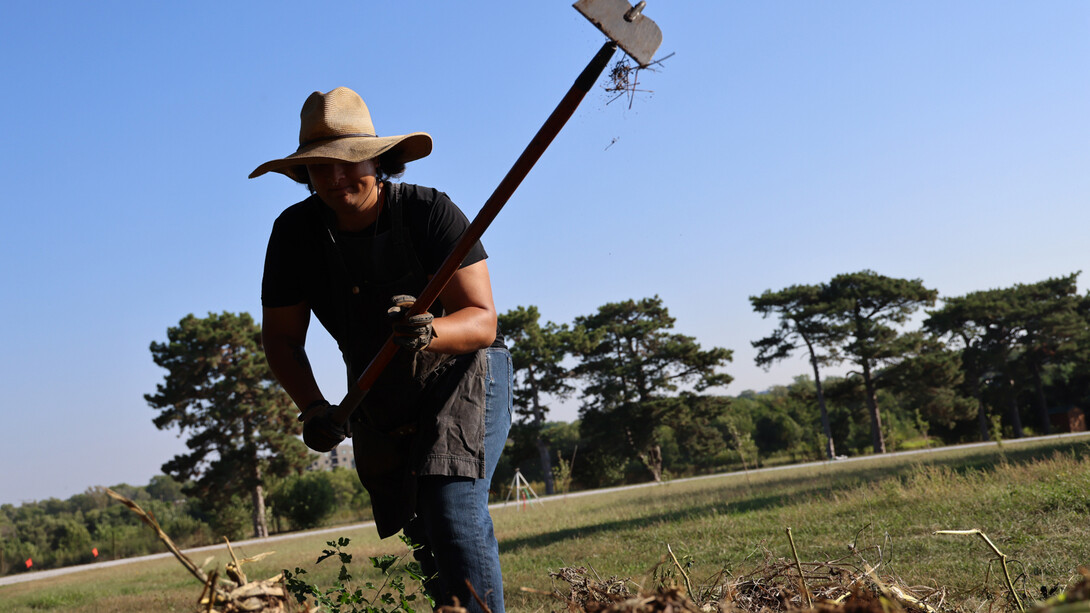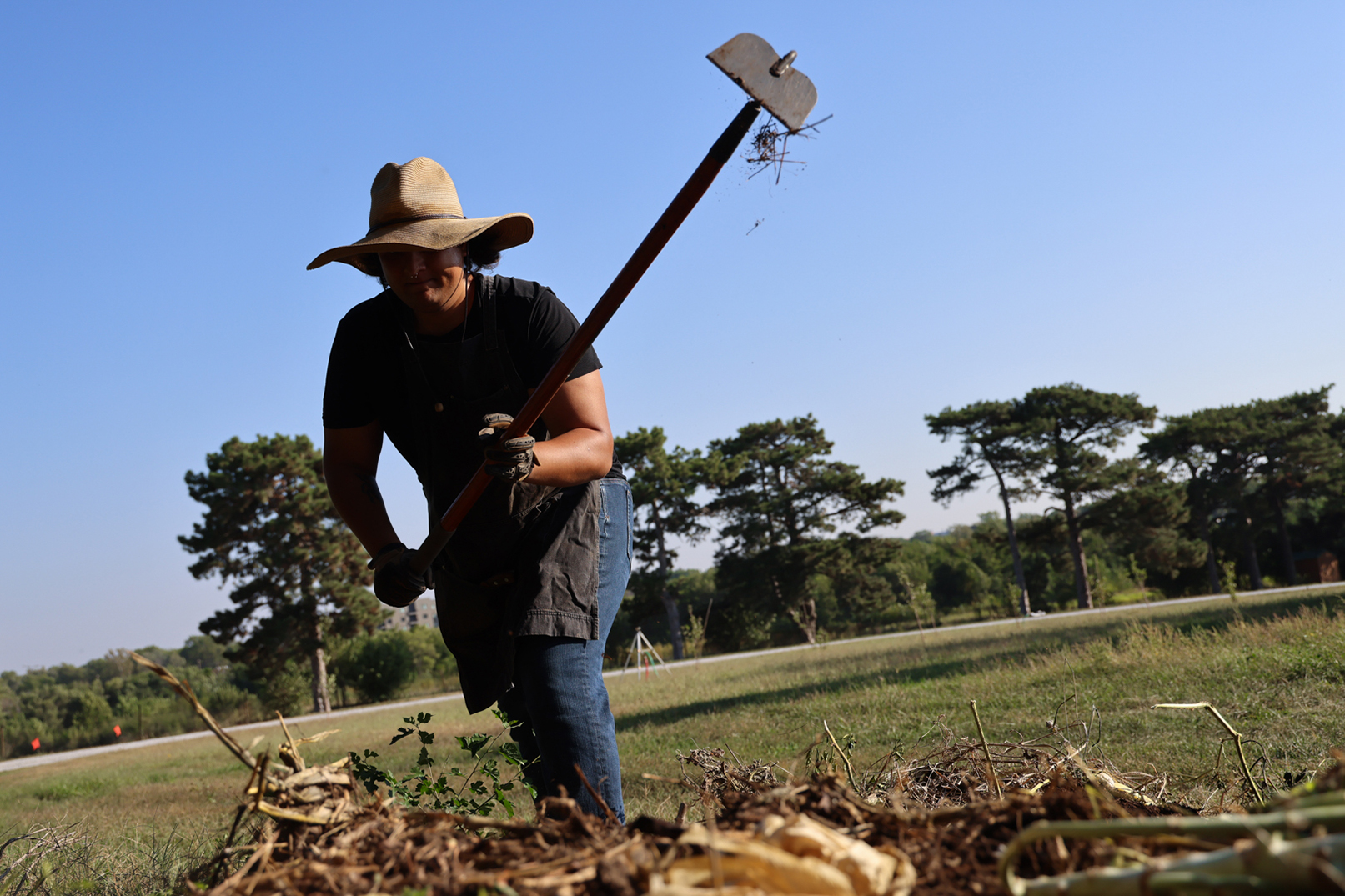
On an early autumn morning, dozens of Native American middle and high school students gather to harvest and prepare their garden for winter. But these children aren’t farmers. They live in Lincoln and come to East Campus each Saturday as part of the University of Nebraska–Lincoln’s Indigenous Youth Food Sovereignty Program.
While the majority of Nebraska’s communities revolve around agriculture, many students in the Lincoln and Omaha metropolitan areas feel no connection to the land or their food sources. Not only is that connection a tradition for Native tribal members, but it’s part of their culture, said Ted Hibbeler, a Rural Prosperity Nebraska Extension educator and the statewide Native engagement coordinator who leads the program.
“We wanted to get the Native American youth in Lincoln involved in growing their own food for their communities to create some healthy food sustainability,” said Hibbeler, a member of the Rosebud Sioux Tribe. “We want to reconnect them with their relationship with the earth and plants that we traditionally had.”
The program began two years ago and has since grown to include 25 students from Lincoln Public Schools, ranging from seventh graders to seniors in high school. Twenty students are already signed up for next year, ready to learn not only about their cultural inheritance but the modern science of food production.
“We have (experts) from the College of Agricultural Sciences and Natural Resources coming in and offering their expertise on the Western science part of growing plants,” Hibbeler said. “Then, we have Indigenous elders come in and talk to these young people about their traditional relationships with the earth and with the plants. So they’re getting both worldviews.”
Lizzie Casas joined the program as a junior, and although she graduated from high school last May, she still comes to the garden because she appreciates learning about her ancestry.
“We always go over learning how to introduce ourselves,” she said. “I’m Rosebud Lakota. They’re teaching us how to make our foods or how people did it back then, or how it has been for a long time.”
Casas said she enjoys the community that comes out of the program. On Saturday mornings, parents and younger siblings often show up to offer helping hands. Casas sees that there’s a real need for the work she and her classmates are doing.
“It gives us a chance to give people food,” she said. “At the powwow recently, a lot of people were excited when we were like, ‘Yeah, there’s free produce.’ They were happy about it.”
At the community garden, students don’t just weed and pick produce. In addition to the $500-per-quarter stipend they earn, they also learn to maintain a healthy garden and preserve the food they grow. Students are allowed to take home food for themselves and their families, but they produce more than they can consume. At the powwow Casas attended, the students gave away 300 pounds of produce. Recently, Timothy Thielen, the program’s coordinator, donated an additional 300 pounds of peppers to the Food Bank of Lincoln.
Thielen, who has Dene ancestry, graduated from Nebraska U in 2020. He is currently working toward a master’s degree in entomology and serves as the program coordinator.
“I ended up loving working with these students and kind of exploring my own Indigenous background,” he said. “I really do care for the community here.”
The community impact is poised to grow. This year, the university’s Department of Agronomy and Horticulture donated a greenhouse to the program so that participants can grow food throughout the year. The hope is that they can begin to venture into farmers markets, offering students yet another skill they can take with them beyond graduation.
“This isn’t just about teaching them how to grow food,” Thielen said. “This is a setting where we can watch and make sure they’re safe, but also let them experience a little bit of what they don’t get to —nature. So we’re teaching them not only how to feed themselves, but to feed their community and, hopefully, take care of it, as well. To me, that’s pretty Indigenous, everyone keeping together and making use of the land we’re given.”
While the program teaches practical information and gardening practices, no gathering or outing is complete without Hibbeler or a tribal elder helping students explore their ancestry.
“If we get more involved with the caretaking of this earth and harvest what the earth gives us, then we’re going to be walking in this world in a healthy manner,” Hibbeler said. “Not only just physically, by eating the good medicine the earth provides us, but also emotionally, mentally and spiritually. So it’s a holistic relationship that we’re trying to teach these young people.”








